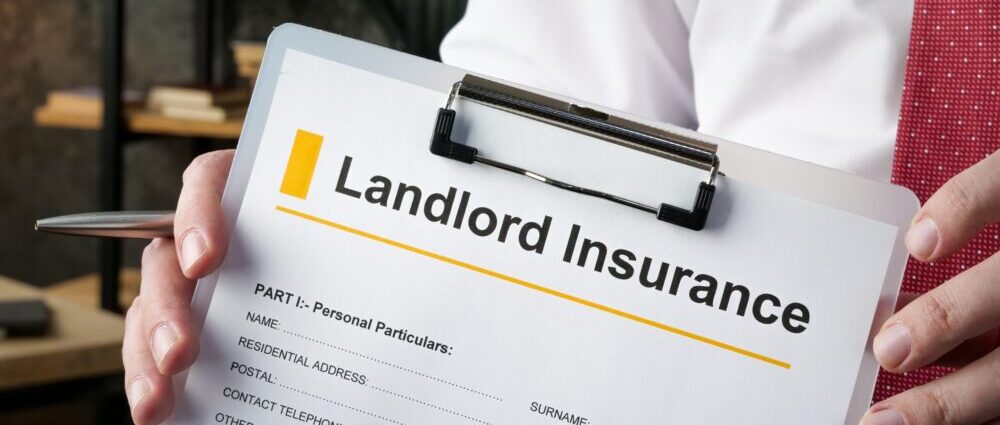
How Much Does Landlord Insurance Cost?
Understanding the Cost of Landlord Insurance
Are you thinking about becoming a landlord? Many people are looking at rental properties for passive income these days. Let’s help you understand more about landlord insurance.
Because of the additional risks involved, landlord insurance tends to cost more than homeowners insurance. However, the rating factors for a rental are different from the home you live in.
Factors That Determine Landlord Insurance Rates
How much you pay will depend on many factors, so let’s look at five factors that determine landlord insurance rates:
1. The Property
It will obviously cost more to insure a large 100-unit property than it will to insure a modest four-unit building. However, size isn’t the only thing that matters. The age and construction of your property will also impact the cost.
For single-family homes, renters generally do not treat the home as well as the homeowner would, and the insurance carriers have noticed this in the past with claim histories. So you may see property coverage cost more for a landlord policy. Have you heard the saying “drive it like it is a rental”? We have seen the same adage applies to rental homes.
2. The Location
In real estate, location is everything. Fire, hurricanes, tornadoes, and other risks vary from region to region, so your location will impact your insurance rates.
Here’s an example: when comparing two similar homes in size, value, etc., and they are 20 miles apart in different zip codes, we have seen as much as a 30% pricing difference when everything seems to be the same. In this case, the insurance companies are looking at thousands of data points, and one location is more likely to have a claim based on location alone. Yes, frustrating but true.
3. The Limits
Higher limits will cost more, so if your property has a high value, you can expect to pay more for insurance. However, this isn’t an area where you want to cut corners. It’s important to secure limits that are high enough to cover the full replacement cost of your property. This will protect you in the case of a total loss.
Additionally, you want to make sure you have the correct liability coverage for a landlord policy. Some policies will not respond if you’re sued for wrongful eviction or enter the property without permission.
4. The Deductible
The deductible is the amount that you have to cover out of pocket if you file a claim. If you have funds available to cover an unexpected loss, choosing a higher deductible can be a good way to lower your premium. However, make sure you have enough resources to cover the deductible you choose. Also, pay attention to different deductibles in your policy. For example, your policy may have a separate deductible for wind and hail damage.
5. The Coverage for Long-Term or Short-Term Rentals
Some policies exclude short-term rentals (STR) in a landlord policy. Weird, right? But insurance companies do rate long-term and short-term rentals differently. Also, STR policies may have coverages for things like bed bugs, whereas a long-term rental policy does not.
Making Informed Decisions
If you have questions about landlord policies, let us help guide you through the confusing options and make sure you can sleep at night knowing your investment property will not turn into a liability.
FAQs
Why is landlord insurance more expensive than homeowners insurance?
Landlord insurance tends to be more expensive because it covers additional risks associated with renting out a property, such as tenant-related damage and liability issues.
What factors influence the cost of landlord insurance?
The cost of landlord insurance is influenced by the property’s size, age, construction, location, coverage limits, deductible amount, and whether the property is used for long-term or short-term rentals.
How does the property’s location affect insurance rates?
Insurance rates can vary significantly based on location due to factors like local weather patterns, crime rates, and historical claim data. Properties in high-risk areas may face higher premiums.
Why are short-term rental policies different from long-term rental policies?
Short-term rentals may involve different risks and higher turnover, leading to distinct coverage needs. Short-term rental policies may include specific coverages not found in long-term rental policies.
Can I reduce my landlord insurance premium by choosing a higher deductible?
Yes, opting for a higher deductible can lower your insurance premium. However, ensure you have the financial resources to cover the deductible in case of a claim.
Is it important to have liability coverage in a landlord policy?
Absolutely. Liability coverage protects you against lawsuits related to tenant injuries, wrongful eviction claims, and property damage, safeguarding your financial interests as a landlord.

